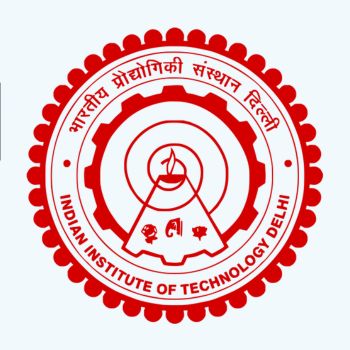Apply now for the IIT Delhi Digital Humanities Winter School 2026. The last date for submission of applications is November 7!
The Department of Humanities and Social Sciences at the Indian Institute of Technology Delhi invites applications for the 2nd Digital Humanities Winter School (DHWS2) to be held from 12 to 17 January 2026 at the IIT Delhi campus. Building on the success of the inaugural Winter School in February 2025 – which brought together a diverse cohort of scholars – this edition turns its focus to Spatial Humanities and Computational Approaches to Text and Data. DHWS2 will provide participants with conceptual foundations and hands-on training in cutting-edge digital tools, equipping them to ask new research questions in a rapidly digitising world.
The Winter School will combine practical workshops with critical perspectives on data analysis in the humanities. This year’s curriculum will cover:
Semantic annotation of textual sources with Recogito; georeferencing and vectorization of historical maps using QGIS; creating and hosting webmaps with qgis2web and GitHub; working with OpenStreetMap, GeoNames and Wikidata for India, urban culture mapping using smartphones, agentic coding with LLMs and spatial research.To be conducted by David Joseph Wrisley (NYU Abu Dhabi)
Constructing and analysing text corpora; exploring patterns through visualization; introduction to classification and basic machine learning tasks; spatial humanities applications through named entity recognition; network analysis; web-based visualizations; critical reflections on computational approaches.To be conducted by Sudeep Narayan Banerjee (CSC, IIT Delhi)
Understanding vector and raster data models; working with geospatial datasets using QGIS; exposure to remote sensing imagery interpretation.To be conducted by Rajarshi Dasgupta (School of Public Policy, IIT Delhi)
Online workshops (Nov–Dec 2025) introducing the basics of programming in Python and R—variables, data structures, conditional statements, loops, functions, regular expressions, and visualization. These sessions will ease participants into computational methods, culminating in hands-on tutorials during the Winter School.To be conducted by Arjun Ghosh (HSS, IIT Delhi)
Critical lectures and discussions with leading scholars.Including Dr. Vinayak Dasgupta (Shiv Nadar University)
The Winter School is designed for students and early-career scholars in the humanities and social sciences with little or no prior experience in programming. It is open to MA/MPhil/PhD students, early-career faculty, archivists, and librarians. Applicants should hold at least a Bachelor’s degree in a humanities or social science discipline. Prior coding experience is not required. This year’s edition particularly welcomes applicants whose work engages with texts, archives, photos or datasets that contain spatial or social information – such as references to street addresses, places, maps, travel accounts, migration narratives, community histories, or records of relationships and networks.
Participants should bring a laptop capable of running a current browser (Chrome, Firefox, Safari). Tutorials will use Google Colab, JupyterHub, and open-source GIS tools such as QGIS (Long Term Release).
The Winter School will provide you:
Applicants would be required to submit:
Applications for the Winter School can be submitted using the Online Application Form.
Last date for applications is 7 November 2025. Selected participants will be notified by 20 November 2025.

